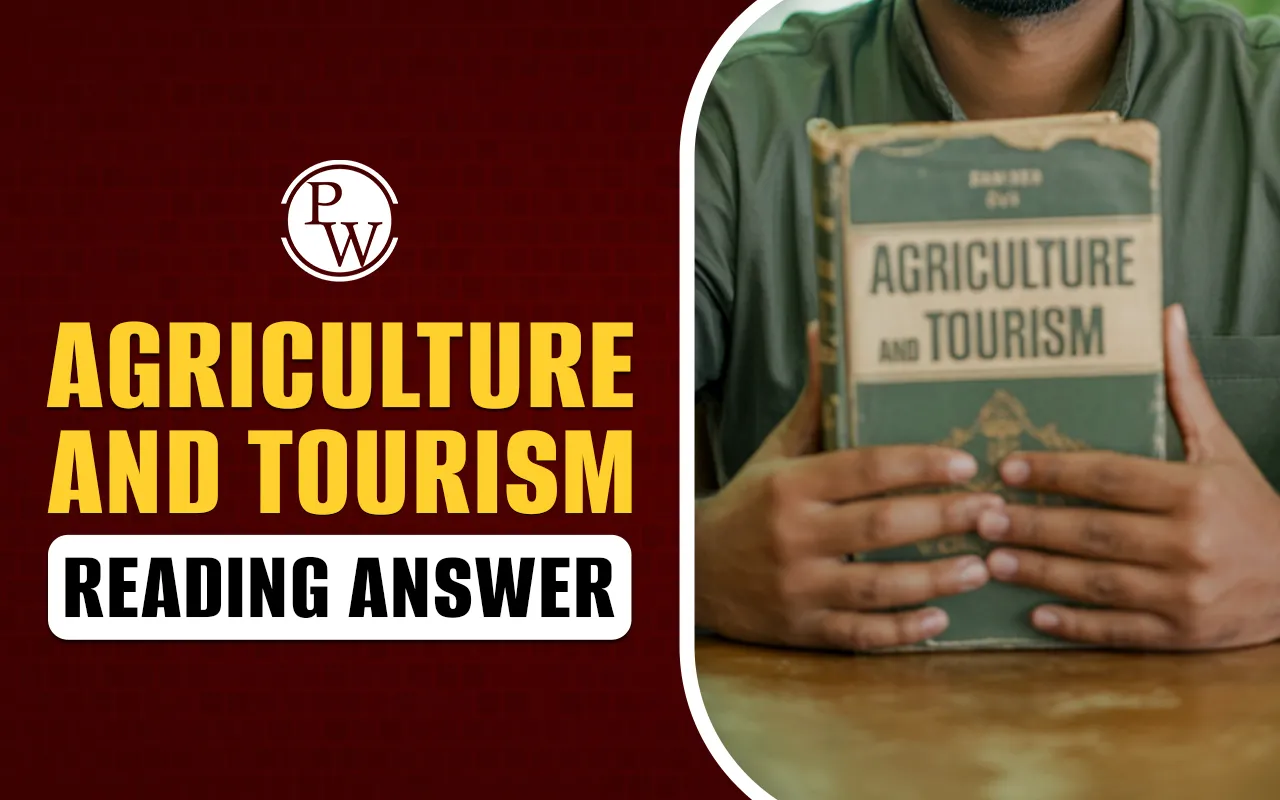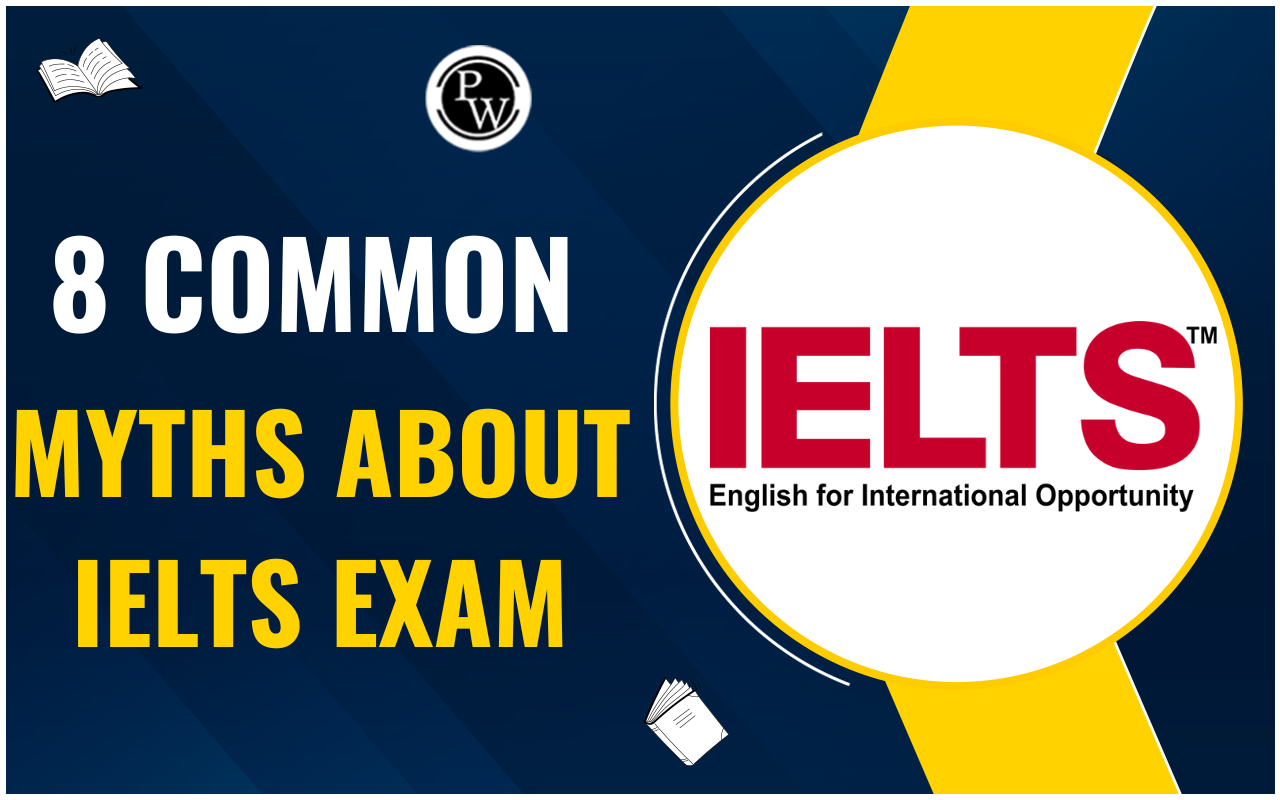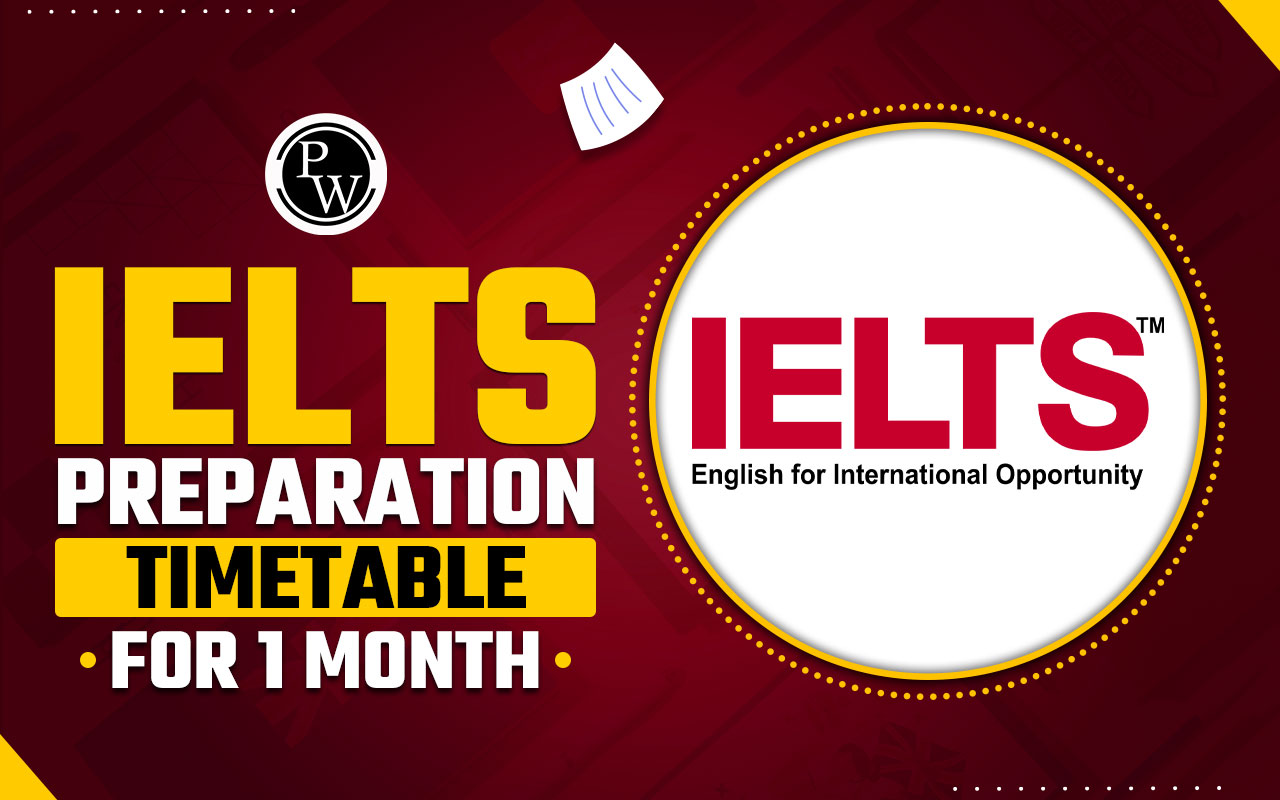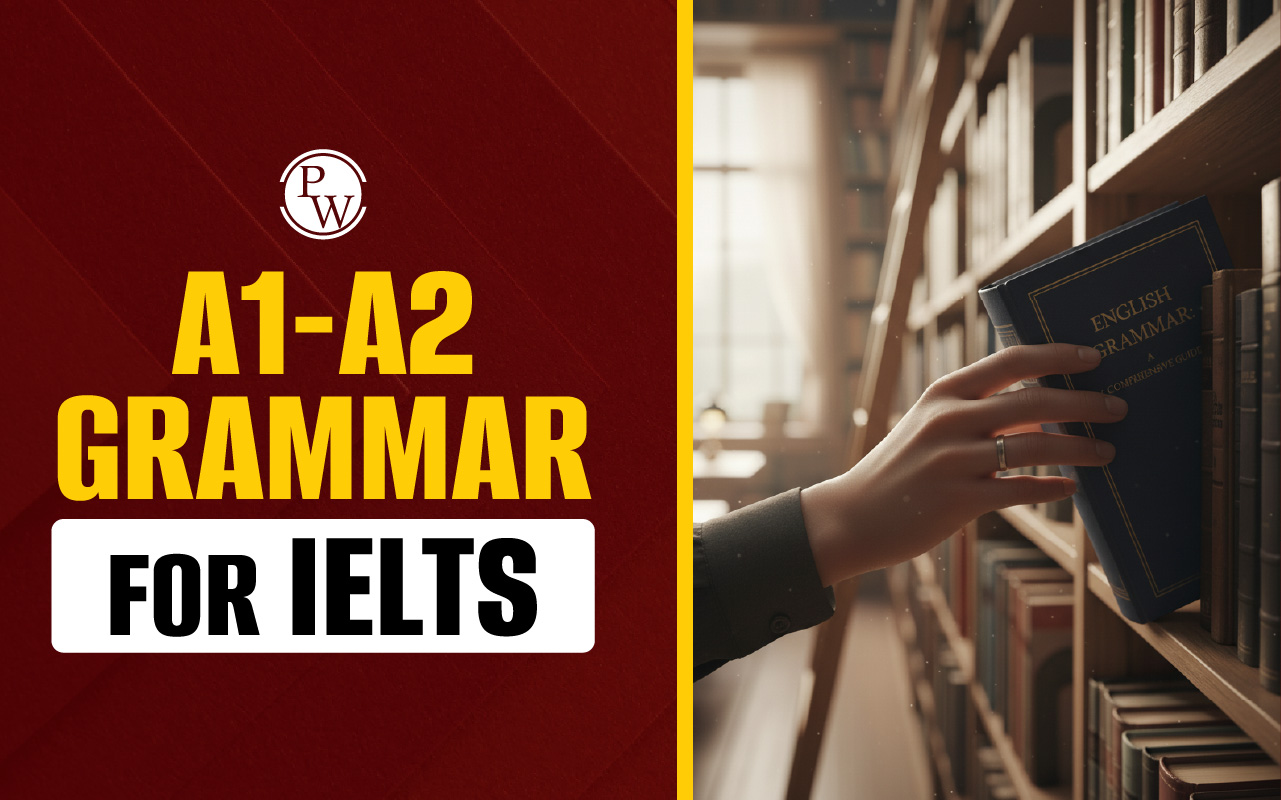
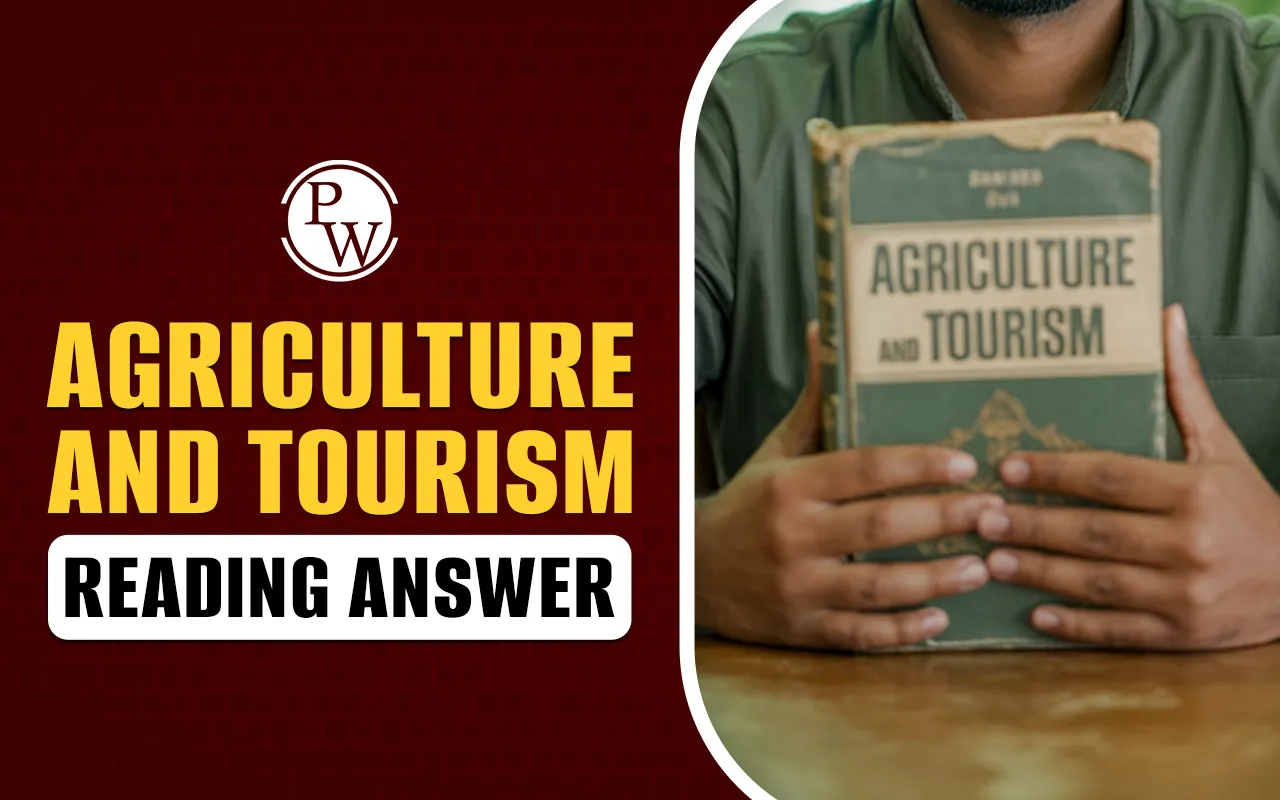
Agriculture and Tourism Reading Answers: The IELTS reading passage on Agriculture and Tourism represents the interconnection between agriculture and tourism. It is a crucial topic that frequently appears in IELTS Academic Reading tests. This passage combines two economic sectors, namely agriculture and tourism. Both demonstrate their interconnected relationship and mutual benefits.
For IELTS candidates, mastering such passages is essential to improve their ability to understand complex passages. Additionally, the related questions strengthen their problem-solving skills.
Besides exam preparation, understanding the Agriculture and Tourism IELTS reading explanation provides valuable insights into sustainable development practices. This guide aims at providing candidates with the complete passage with IELTS based question. Additionally, students can access the detailed IELTS reading answers for Agriculture and tourism to strengthen their exam preparation.
Free IELTS Reading Practice Tests
Agriculture and Tourism Reading Answers IETLS Passage
Here is the full agriculture and tourism IELTS reading passage. Candidates must carefully read the passage before attempting the questions provided below.
Passage: Agriculture and Tourism
Paragraph A
Linkages between the Agri-Food Sector and Tourism offer significant opportunities for the development of both sectors within the region. These linkages could lead to ensuring the sustainability of the region's tourism product thus ensuring its preservation. Agriculture and tourism — two of Wisconsin's most industries — are teaming up in southwestern Wisconsin and have found that tourists, rural communities, and some farmers could benefit from stronger efforts to promote and market agricultural tourism there. In 1990, agricultural tourism project members surveyed 290 visitors to the annual Monroe Cheese Festival and 164 visitors to the Picnic on the Farm, a one-time event held in Platteville in conjunction with the Chicago Bears summer training camp. More than one-half of those surveyed responded favorably to a proposed tour, saying they would be interested in participating in some type of agricultural tour in southwestern Wisconsin. Survey respondents reported that they would prefer to visit cheese factories, sausage processing plants, dairy farms, and historical farm sites, as well as enjoy an old-fashioned picnic dinner. The study also found strong interest in visiting specialty farms (strawberries, cranberries, poultry, etc.). More than 75 percent of the Cheese Day visitors planned ahead for the trip, with 37 percent planning at least two months in advance.
Paragraph B
More than 40 percent of the visitors came to Monroe for two- or three-day visits. Many stopped at other communities on their way to Cheese Days. Visitors at both events indicated that they were there to enjoy themselves and were willing to spend money on food and arts and crafts. They also wanted the opportunity to experience the "country" while there. The study found that planning around existing events should take into account what brought visitors to the area and provide additional attractions that will appeal to them. For example, visitors to Cheese Days said they were on a holiday and appeared to be more open to various tour proposals. Picnic visitors came specifically to see the Chicago Bears practice. They showed less interest in a proposed agricultural tour than Cheese Day visitors, but more interest in a picnic dinner.
Paragraph C
The study identified three primary audiences for agricultural tourism: 1) elderly people who take bus tours to see the country; 2) families interested in tours that could be enjoyed by both parents and children; and 3) persons already involved in agriculture, including international visitors. Agricultural tourism can serve to educate urban tourists about the problems and challenges facing farmers, says Andy Lewis, Grant county community development agent. While agriculture is vital to Wisconsin, more and more urban folk are becoming isolated from the industry. In fact, Lewis notes, farmers are just as interested in the educational aspects of agricultural tours as they are in any financial returns.
Paragraph D
"Farmers feel that urban consumers are out of touch with farming," Lewis says. "If tourists can be educated on issues that concern farmers, those visits could lead to policies more favorable to agriculture." Animal rights and the environment are examples of two issues that concern both urban consumers and farmers. Farm tours could help consumers get the farmer's perspective on these issues, Lewis notes. Several Wisconsin farms already offer some type of learning experience for tourists. However, most agricultural tourism enterprises currently market their businesses independently, leading to a lack of a concerted effort to promote agricultural tourism as an industry.
Paragraph E
Lewis is conducting the study with Jean Murphy, assistant community development agent. Other participants include UW-Platteville Agricultural Economist Bob Acton, the Center for Integrated Agricultural Systems, UW-Extension Recreation Resources Center, the Wisconsin Rural Development Center, and Hidden Valleys, a Southwestern Wisconsin regional tourism organization. This past fall, Murphy organized several workshops with some Green and Grant County farmers, local business leaders, and motor coach tour operators to discuss how best to organize and put on farm tours. Committees were formed to look at the following: tour site evaluations, inventory of the area's resources, tour marketing, and familiarization of tours. The fourth committee is organizing tours for people such as tour bus guides and local reporters to help better educate them about agricultural tourism. Green County farmers already have experience hosting visitors during the annual Monroe Cheese Days. Green county Tourism Director Larry Lindgren says these farmers are set to go ahead with more formal agricultural tours next year. The tours will combine a farm visit with a visit to a local cheese factory and a picnic lunch.
Paragraph F
Another farm interested in hosting an organized tour is Sinsinawa, a 200-acre Grant County farm devoted to sustainable agriculture and run by the Dominican Sisters. Education plays a major role at the farm, which has an orchard, dairy and beef cows, and hogs. Farm tours could be combined with other activities in the area such as trips to the Mississippi River and/or visits to historical towns or landmarks, Lewis says. The project will help expose farmers to the tourism industry and farm vacations as a way to possibly supplement incomes, he adds. While farm families probably wouldn't make a lot of money through farm tours, they would be compensated for their time, says Lewis. Farmers could earn additional income through the sale of farm products, crafts, and recreational activities.
Also Read:
Agriculture and Tourism Reading Answers IELTS Questions
Here are the passage-based questions for IELTS preparation. Candidates must understand the requirements of each question to answer them accurately:
Question 1-2: Multiple Choice Questions
1. What was the main purpose of surveying visitors at Cheese Festival and Picnic on the Farm?
A. To advertise the Chicago Bears event
B. To understand tourist preferences for agricultural tours
C. To increase dairy production in Wisconsin
D. To evaluate food quality at festivals
2. What group showed the least interest in agricultural tours?
A. Cheese Day visitors
B. International tourists
C. Picnic on the Farm visitors
D. Families with children
Question 3-6: Matching Information
Match the following statements with the correct section (A–F):
3. A regional farm run by Dominican Sisters engages in sustainable farming.
4. Tourists expressed a desire to explore historical farming areas.
5. Urban-rural disconnect is a concern for both farmers and educators.
6. Organizers planned promotional tours for tour operators and reporters.
Question 7-9: True / False / Not Given
7. More than half of the Cheese Day visitors said they would not take part in an agricultural tour.
8. The main goal of the farm tours is to replace farming income completely.
9. Committees were formed to support the organization and marketing of farm tours.
What are the IELTS Reading Answers for Agriculture and Tourism?
The correct answers to all the practice questions for the IELTS agriculture and tourism passage are provided below. Candidates must perform self-analysis by referring to these answers and their explanations:
-
B (The passage clearly explains the survey aimed to understand interest in agricultural tours.)
-
C (Picnic on the Farm visitors showed less interest in tours than Cheese Day attendees.)
-
F (Section F discusses the Sinsinawa farm run by Dominican Sisters focused on sustainable farming.)
-
A (Section A mentions tourists wanting to visit historical farm sites.)
-
C (Section C covers the growing disconnect between urban visitors and agricultural issues.)
-
E (Section E explains how tours for guides and reporters were arranged.)
-
False (More than half expressed interest, not refusal.)
-
False (The tours are to supplement, not replace, income.)
-
True (Section E states that committees were formed to organize and promote tours.)
How to Solve IELTS Reading Passage on Agriculture and Tourism?
Following a strategic approach is crucial to effectively manage time and solve all the questions during the exam duration. Here are some practical tips on how to approach the IELTS reading passage on Agriculture and Tourism:
-
Skim the passage first to get an overall idea of what it’s about.
-
Pay attention to dates, numbers, and names when reading the passage. Many questions are based on these details, and knowing them can be helpful in quickly answering the passage.
-
To answer matching heading questions, students should summarise the main idea of each paragraph.
-
Students must avoid assuming anything. They must find the details in the passage to answer the question.
-
Candidates must allocate a maximum of 20 minutes to complete the passage. Ideally, they should allocate 3 minutes to read the passage, 15 minutes to answer the questions, and 2 minutes to review their answers.
-
Before answering the questions, candidates must analyse the question to identify its requirements.
| IELTS Reading Band Score | IELTS Listening Band Score |
| IELTS Speaking Band Score | IELTS Writing Band Score |
Guidance of PW IELTS
Physics Wallah offers a few popular online IELTS courses for all students. Follow the latest IELTS articles to better prepare for the exam.
| IELTS Registration | IELTS Eligibility Criteria |
| IELTS Exam Pattern | IELTS Syllabus |
| IELTS Exam Dates | IDP IELTS Test Centers |
